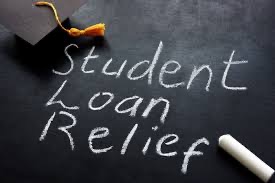Financial loans are an example of installment credit. Loans are complex and their terms may seem confusing, but they can provide needed money at a time when you don’t have it. Many people use financial loans to pay for a car, house, education, or assistive technology.
Learn more about how loans work, when to consider one, questions to ask, and how to evaluate loan terms in this three-part blog series on understanding loans by Pennsylvania Assistive Technology Foundation.
November 22, 2022 –
The student loan payment pause is extended until the U.S. Department of Education is permitted to implement the debt relief program or the litigation is resolved. Payments will restart 60 days later. If the debt relief program has not been implemented and the litigation has not been resolved by June 30, 2023 – payments will resume 60 days after that. We will notify borrowers before payments restart.

Please note: Courts have issued orders blocking our student debt relief program. As a result, at this time, the U.S. Department of Education is not accepting applications. If you’ve already applied, they will hold your application.
Things to know:
Beware of scams! This is a free service; do not pay someone to do this for you.
No one from the Department of Ed will call asking for your personal information or call at all
STOP before you click on any links in either email or text. Look for “.gov” in the email address.
Read more...
College can be expensive and a student loan may seem like an attractive way to fund your degree. But, think carefully about where you want to go, what you want to study, and how much money you will need to borrow in order to attend school. The more money you borrow, the bigger a commitment you’re making to paying it back—and the more money you’ll ultimately pay in interest. Be sure to research all your options for funding your education, including scholarships, financial aid, grants, work-study, and resident assistant programs.
If you decide you want to take out a student loan, and you have determined how much money you’re comfortable borrowing (and eventually paying back), you have options about which lending program to use. There are two major sources of student loans: federal and private. Learn more about the types of federal student loans.
The Federal Pell Grant is a grant available to undergraduate students who display exceptional financial need and have not earned a bachelor’s, graduate, or professional degree. Learn more about Pell Grants and find out if you qualify.
One missed payment can result in a delinquency, and multiple missed payments can result in a default. This will have a severe negative impact on your credit. Avoid these problems by researching your options for delaying your payments if you find yourself in a position where you can’t afford them for a period of time. And be aware, it is very difficult to get discharged from a student loan—in fact, they are one of the only types of loans that will not be discharged even if you file for bankruptcy! One exception: if you are totally and permanently disabled, you may qualify for a total and permanent disability (TPD) discharge of your federal student loans. With a TPD discharge, you will no longer be required to repay your loans. Learn more about total and permanent disability discharge.